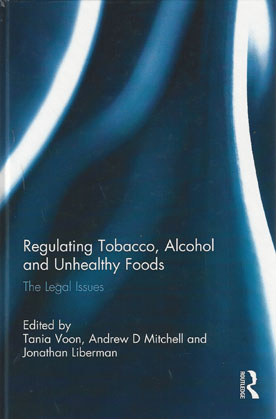
Increasingly the issue of reducing premature deaths from non-communicable diseases (NCDs) is one which is engaging international organizations and in 2012 World Health Organization Member States agreed on a global monitoring framework for NCDs, comprising nine voluntary targets including targets relating to harmful use of alcohol, tobacco and obesity and 25 indicators.
At the same time commercial industries affected by NCD risk factor regulation are increasingly challenging that regulation in domestic and international legal fora, including in constitutional courts, the World Trade Organization, and before investment arbitration tribunals. Clarifying how NCD prevention may be accommodated within these different legal systems is fundamental to the long term success of both public health regulation and the legal systems themselves.
This volume provides a comprehensive analysis of the key areas of domestic and international law affecting the three most common risk factors for non-communicable diseases, namely tobacco, alcohol and obesity. In particular, the book explores how the effective regulation of tobacco, alcohol and unhealthy foods can be achieved pursuant to international health law and within the context of obligations imposed by international trade and investment law, international intellectual property law, and domestic laws including constitutional law.
The book will consider the various tensions that arise between domestic and international laws on the one hand and the regulation of NCD risk factors on the other as well as offering an original analysis of the relationship between evidence and regulation in the context of NCD risk factors. The contributors to the volume then go on to examine NCD regulation from a regional perspective including discussion of domestic health regulation of NCD risk factors and the associated political and legal controversies in specific countries and regions.